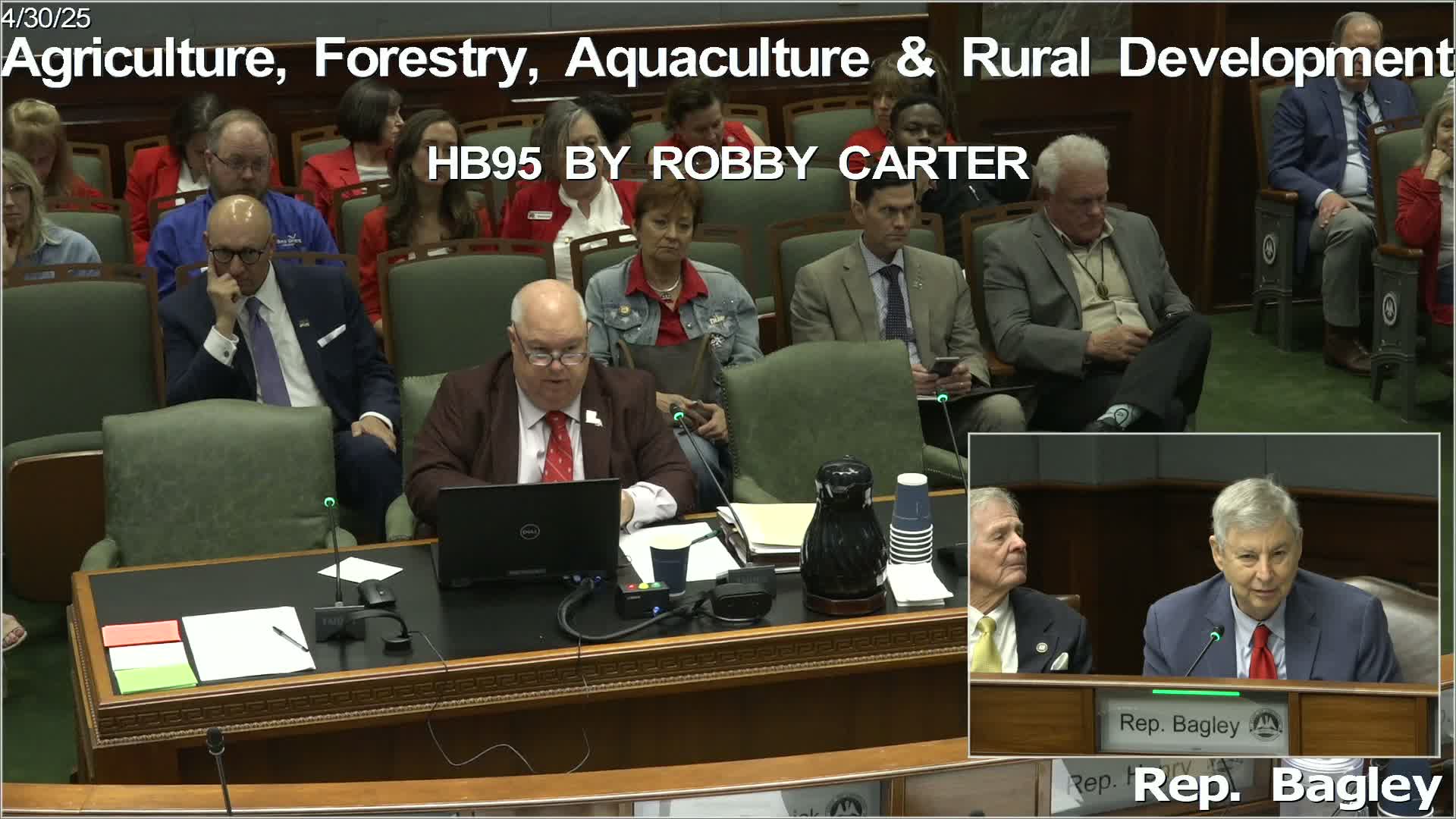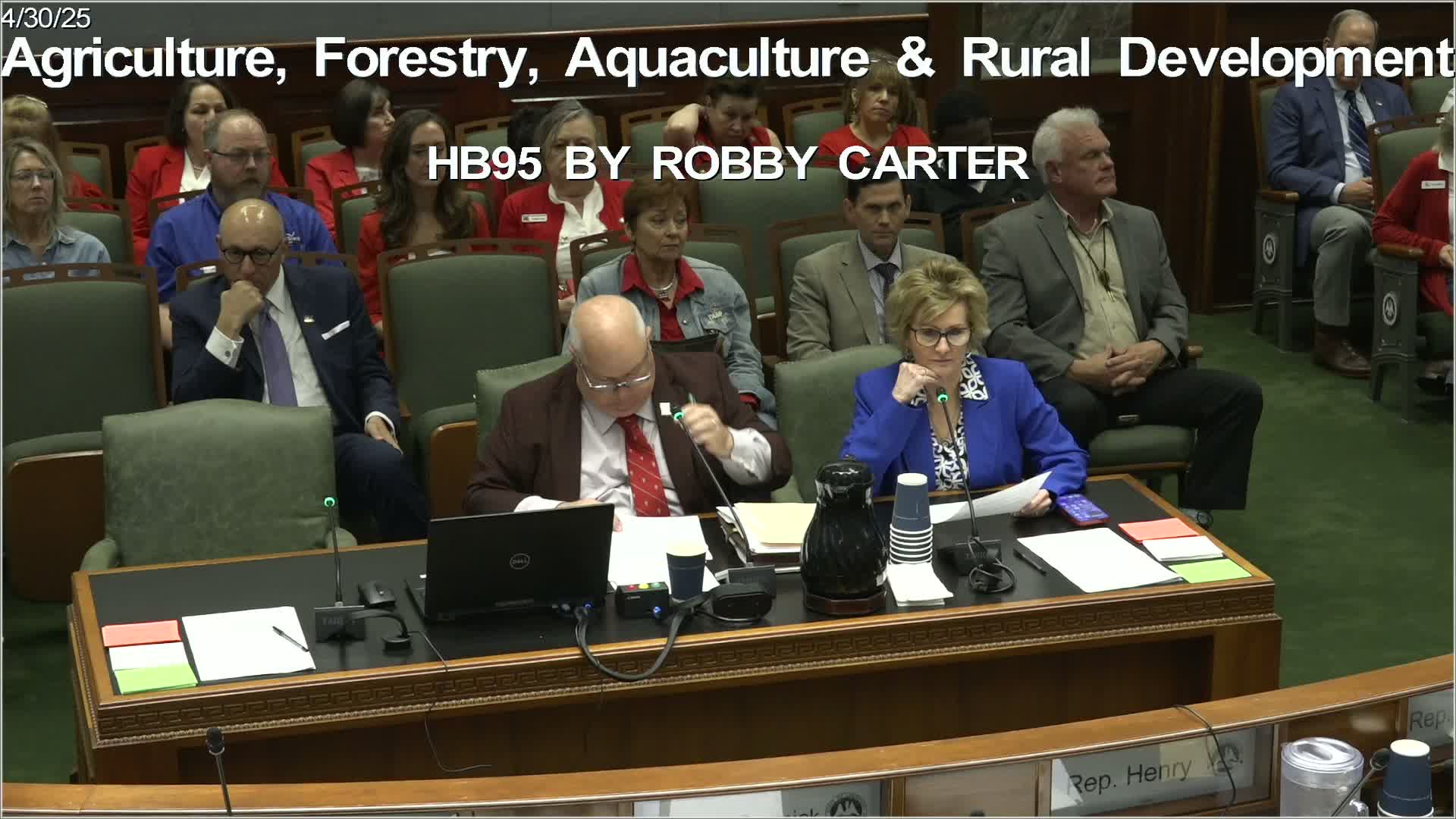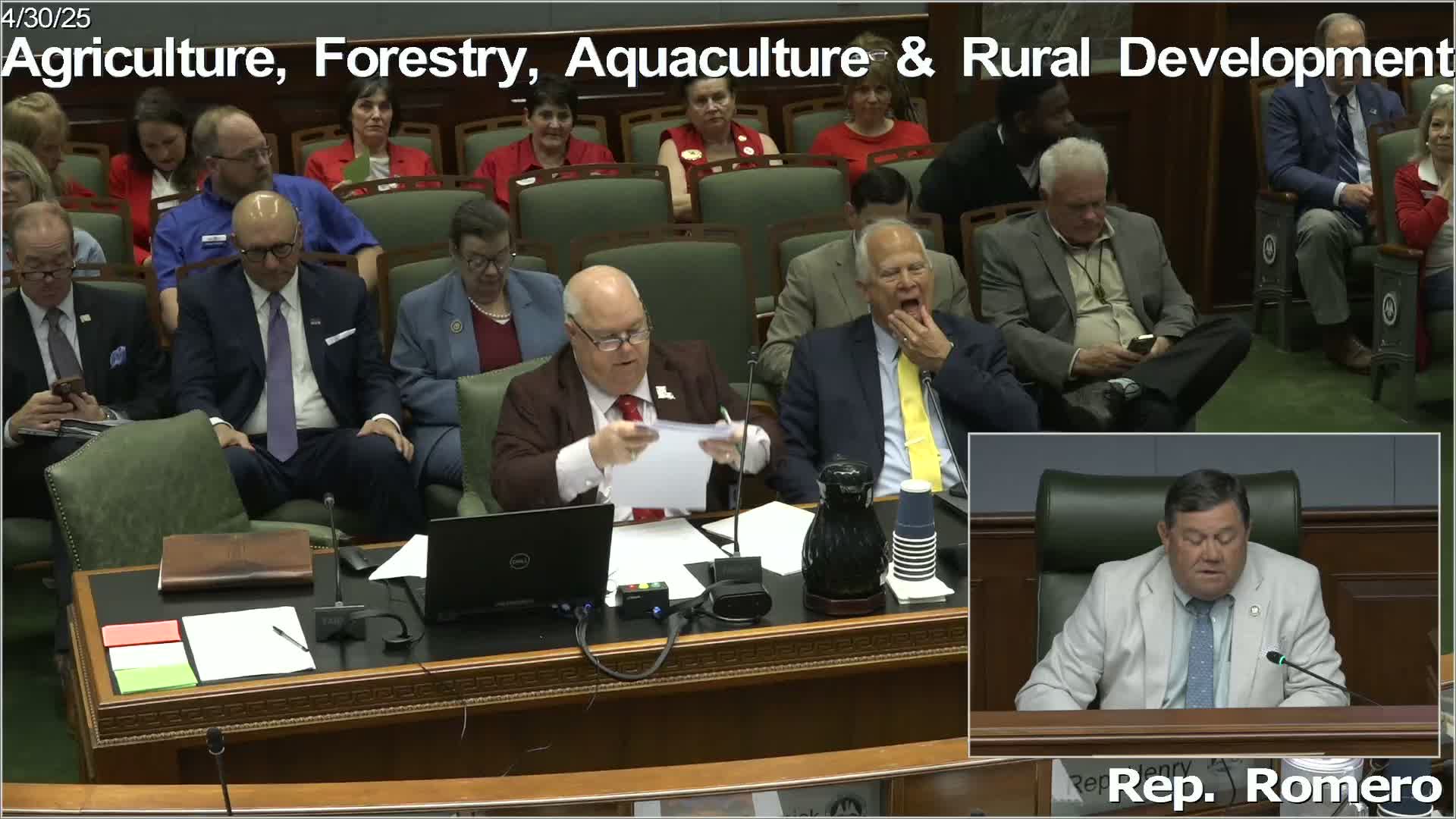Article not found
This article is no longer available. But don't worry—we've gathered other articles that discuss the same topic.

LSU AgCenter presents strategic plan and tallies economic return from research, extension and workforce programs

LDAF commissioner outlines trade, disease, labor and infrastructure pressures in annual report to Ag Committee

Committee approves bill letting certain LDAF commissioned officers buy service weapon at retirement; amendments adopted

